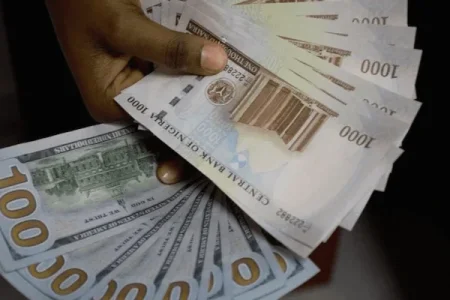
Nigeria's exchange rate fell to a six-month low of N1,625.88 per dollar on August 4, 2024, indicating ongoing economic challenges. The naira's depreciation coincided with rising petrol prices, contributing to inflation and tightening liquidity in the foreign exchange market, which saw a significant drop in turnover.
On August 4, 2024, Nigeria's exchange rate fell to a six-month low of N1,625.88 per dollar on the official NAFEM market, reflecting a worrying trend for the naira. This depreciation of 0.89% from the previous day's rate of N1,611.34/$1 marks the lowest level since March 8, 2024, when the rate was recorded at N1,627.4/$1.
The foreign exchange market experienced significant volatility, with the naira trading between N1,640/$1 and N1,400/$1. Meanwhile, FX turnover for the day decreased to $205.76 million, down 1.84% from $209.61 million the day before, highlighting ongoing liquidity challenges. This decline in the exchange rate coincides with a reported increase in petrol prices, which is likely to exacerbate inflation and further strain both businesses and consumers.
The official FX market has seen a substantial reduction in turnover over the past month, falling by $1.08 billion to $3.25 billion in August from July's $4.34 billion, indicating tightening dollar liquidity. This situation poses a significant challenge for the Central Bank of Nigeria (CBN) in maintaining the naira's value.
Amid these conditions, CBN Governor Yemi Cardoso acknowledged the complexities involved in managing the currency crisis, indicating that future stabilization efforts would depend on broader fiscal measures and macroeconomic fundamentals. The naira has been identified as one of the world’s worst-performing currencies this year, alongside Egypt's pound and Ghana's cedi.
Source: Nairametrics




